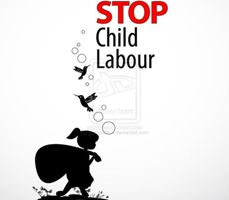
Centre for Social Research, an organization working to protect the rights of young girls and women, has urged PM Narendra Modi to reconsider this as the amended law will adversely affect the girl child who is often forced into domestic work.
“Has the government accepted that they cannot provide childhood to their children and is therefore encouraging them to remain in child labour, instead of allowing them to go to school? This will prove disastrous for the girl child. We do not want our children, who are born poor, to remain uneducated and live in poverty forever,” says Dr. Ranjana Kumari, Director, and Centre for Social Research.
Young girls often choose to give up their education because of other family responsibilities, ignoring their childhood completely. The law should not promote suchdecisions and behaviors which are a result of unfavourable circumstances and poverty.
‘Family enterprises’ can be exploitative and fall in the unorganized sector, making them hard to govern legally. Further the amendment allows children below 14 years to work in family enterprises after school hours. This would mean the child engages in labour-intensive work and gets no time to relax or play, even though that may not be termed hazardous. Girls are the first ones to be pushed into domestic work. And a family enterprise without an arrangement for alternate schooling will be disastrous for the girl child.
We fully support the demand of Nobel laureate Kailash Sathyarthi of clearly defining ‘family’ and the ‘employer-employee relationship’ under the Act. He had earlier said that he is not opposed to the contentious amendment, which allows kids under the age of 14 to work in family-run enterprises, as long as the government restricts the definition of ‘family’ to parents or legal guardians and the work does not affect the child’s health, education and leisure time.
A survey conducted by the NCERT shows an impressive growth in the enrolment of girl students in schools. The eighth all India education survey (AIES) by NCERT for 2002-09 shows the enrolment at primary stage stood at 48.13 percent. However it came down to 42.56 percent at higher secondary stage. Similar trend is observed in percentage of girls enrolled in schools in rural areas. There is a need to check the school drop out rates for girls.
Centre for Social research has been implementing the ‘BetiBachao, BetiPadhao’ campaign in rural Haryana in order to address discrimination against the girl child. The programme is an attempt to generate awareness and improve the efficiency of delivery of welfare services through social & behavior change action, recognizing a need to connect with the communities first, right from the grass root level to ensure gender equality. CCI Newswire































